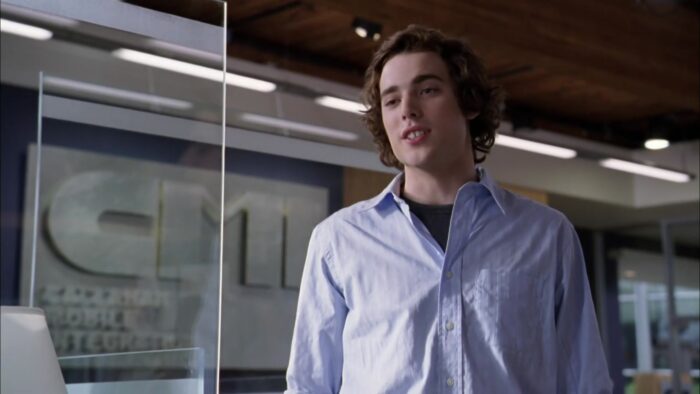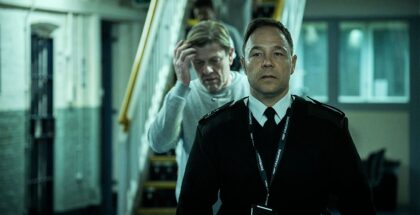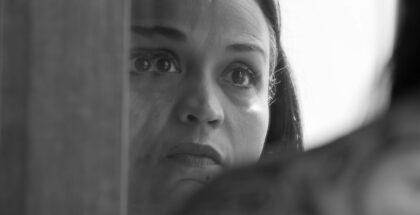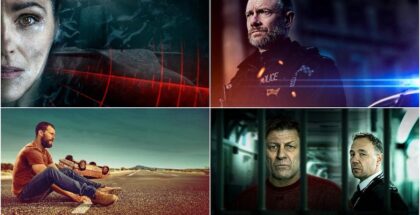Time Travel Thursday: The Butterfly Effect 2 (2006)
Review Overview
Time travel tropes
5The Butterfly Effect
4Sexy bits
6Matthew Turner | On 03, Dec 2020
Director: John R Leonetti
Stars: Eric Lively, Erica Durance, Dustin Milligan, Gina Holden, David Lewis, Andrew Airlie, Susan Hogan, Lindsay Maxwell
Certificate: 15
Watch The Butterfly Effect 2 online in the UK: Amazon Prime
Has Tenet whetted your appetite for more time travel titilation? Transport yourself no further than Time Travel Thursdays, our column devoted to time travel movies. It’s on Thursdays.
Directed by John R Leonetti, The Butterfly Effect 2 is only a sequel to the 2004 hit in the sense that it takes the basic concept – a man discovers the ability to travel back in time – and tells more or less the same story with different characters. There is an explicit connection to the first film, but it’s only a peripheral one – at one point, the lead character researches his condition and finds a newspaper article about Ashton Kutcher’s father from the first movie.
Eric Lively (brother of Blake, and once you know that, you can’t unsee it) plays tech start-up hopeful Nick Larson, who’s about to propose to his photographer girlfriend Julie (Smallville’s Erica Durance) when a tragic car accident kills both her and Nick’s best friends, Trevor and Amanda (Dustin Milligan and Gina Holden). A year later, a still depressed Nick stares hard at a photograph of the four of them on that day and is transported back through time to the moment the photo was taken.
Once he’s worked out what’s happened, Nick manages to save their lives and when he returns to the present, he finds that he and Julie are now happily living together. However, his work situation is less than ideal, so Nick looks at another photograph and travels back to a different point in the past, but this time he only succeeds in making things worse.
In terms of the time-travel set-up, it’s more or less the same as in the first film. With Ashton Kutcher’s Evan, the time travel happened when he read his old journals, but here Nick only has to look at a photograph and he’s effectively transported into the moment the photo was taken.
However, there’s a crucial difference – in the first movie, Evan’s return to the present was accompanied by a nosebleed-inducing rush of “catch-up memories”, as his brain clued him in on the events of the new timeline he’d created. Here, Nick still gets the nosebleeds but the catch-up memories are gone, which feels like a lazy cop-out, script-wise, because most of the film’s very lame twists involve Nick being “surprised” by his new reality, eg. not being with Julie any more or the fact that he’s been having sex with his boss’ daughter (Lindsay Maxwell).
The script is also both painfully devoid of ideas and criminally lazy when it comes to establishing stakes. For one thing, there’s simply no reason for Nick to time travel the second time – he’s happy with Julie, even if they’re having a few money problems, and sure, he’s lost his job, but with his skillset and tech knowledge, you feel that he could easily get a better one.
The laziness doesn’t stop there, as there are a number of glaring inconsistencies. For example, at one point, Nick has clearly remembered where he now lives, but apparently not what his new luxury flat actually looks like.
On the plus side, the time travel effects themselves are pretty decent – they’re simple but effective, using a digital effect where it seems like the walls of reality are shifting and twisting around Nick. In particular, the film has a nice trick with the photographs, whereby the people in them come briefly to life, like in Harry Potter.
The film is also notable for its sex scenes, which go on much longer than you’re expecting and are actually quite good, especially considering they’re in no way explicit. (Lively does briefly flash his bottom later on, but that’s as far as it goes, nudity-wise.) That said, the sequel also reprises the first film’s dubious attitude to homosexuality, including a bizarre scene that involves Nick being assaulted. It’s very odd – it comes out of nowhere and has no real purpose in the film, other than to offensively suggest the new hell that Nick has made for himself.
Perhaps the most interesting thing about the film is that, whether it means to be or not, it ends up being about how self-absorbed men just don’t listen. A lot of the Nick’s problems could easily have been avoided if he’d just simply paid more attention to the people around him – he fails to ask Julie what it was she wanted to tell him, and he similarly fails to notice that Trevor is clearly in a lot of trouble, with Milligan’s wild over-acting actually making it weird that Nick doesn’t say anything.
The film does have one more thing to its credit and that is that, like the first film, the finale kicks against Hollywood tradition, allowing for a nicely delivered little twist at the very end. Other than that, the only additional things worth mentioning are that a) director John R. Leonetti is the younger brother of the original film’s cinematographer, and b) the closing credits contain an unexpected tribute to director John Frankenheimer, crediting him with inspiring the film.
The Butterfly Effect 2 is available to watch online on Amazon Prime Video as part of a Prime membership or a £5.99 monthly subscription.



















